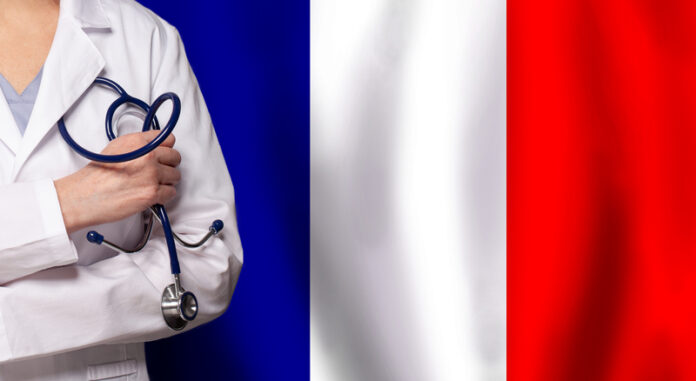France is one of the European countries where the most is spent on healthcare, in fact, investment figures amount to 12.3% of GDP in 2022.
France has a universal healthcare system for all its residents based on compulsory health insurance. In the country, as reported in the latest report of the European Observatory of Health Systems and Policies, the system is mainly financed by employee and employer contributions.
It should be noted that already in 2013, France was recognised as a solid and efficient provider and organiser of healthcare, an example for our country.
The complex French healthcare machine involves numerous actors, including: the Ministry of Health, the High Health Authority, the National Agency for the Safety of Medicines and Health Products (ANSM), the Santé Publique France, which mainly plays an advisory role to ensure proper health promotion, and finally the Assurance Maladie, which deals with the reimbursement of health services offered (e.g., medicines, visits and analyses).
French life expectancy
Considering France’s investment in healthcare, one is not surprised by the remarkable successes of its health service. We spoke about this with Christel Farina, a pharmacist of Fos-sur-mer, a town in the Bouches-du-Rhône department in southern France, who says, with data in hand: «Among the major successes of the French health service is certainly the country’s high life expectancy. French women live on average longer than European women (85.5 years compared to 82.9 years), ditto for men (79.3 years compared to 77.2 years at European level)».

In addition, Farina points out «good results have also been achieved for the treatment of cardiovascular disease, which is the second leading cause of death in France in 2020 after cancer, with the lowest mortality rate in Europe for both sexes (226 deaths per 100,000 men and 139 deaths per 100,000 women in 2019».
Finally, the Pharmacist points to a little-treasured subject, that of ‘premature’ deaths (before the age of 65): «in France, in recent years, they are well below the European average. (249 deaths per 100,000 inhabitants, men, and 125 deaths per 100,000 inhabitants, women)».
A very important issue, that of life expectancy, is the mirror of far-sighted health policies, and it is also worth noting that access to French healthcare is for all, as Farina confirms: «The French healthcare system guarantees access to the entire population: the most disadvantaged are entitled to the Solidaire Sickness Insurance, with no advance payment and full coverage of medical expenses».
Weaknesses: lack of health personnel and rising obesity rates
Despite efforts and investments, the French healthcare system faces several significant challenges: «Around 45% of the French population is overweight and 14% suffer from obesity, with a higher prevalence in the northern and overseas regions. In 2019, 11% of adults over the age of 15 suffered from depressive symptoms, with a greater impact on low-income groups. Furthermore France ranks among European countries with high alcohol consumption, with a significant increase in major episodic drinking in recent years. At the same time, the prevalence of tobacco smoking is decreasing, although the trend stopped in 2020, coinciding with the Covid-19 pandemic. It is important to emphasise that much of the disease and death linked to excessive alcohol and tobacco consumption could be prevented by changing individual behaviour and strengthening prevention measures».
It is not only the issue of prevention, and avoidable deaths, that unites us with our French cousins, but also the issue of medical deserts: «To date, medical deserts involve between 6 and 8 million people. This problem does not only affect rural or mountainous areas, but also urban or peri-urban areas. Many physicians retire and are not replaced, few new doctors leave university. This is the result of the closed number system that was in force in France for almost 50 years (from 1971 to 2020). Since 2021, there has been a shift to open numbering in health faculties, increasing the number of students and future health professionals».
Farina adds an important piece to the population’s accessibility to medical examinations, stating «facilities are often overcrowded and waits are very long. Even though doctors’ offices are open every day, Monday to Saturday, from 9am to 10pm».
Prevention, avoidable deaths and medical deserts: there are a lot of things in common between France and Italy
A situation very similar to ours, but France has gone a step further to try to stem the problem by making pharmacists themselves responsible: «Teleconsultation booths have been implemented in city pharmacies (at pharmacists’ expense). In addition, new tasks have been assigned to us, including: vaccination (administration and prescription), screening of tonsillitis and bacterial cystitis by means of rapid tests (with subsequent prescription of antibiotics in the event of a positive test) and follow-up interviews with patients to evaluate therapy».
Looking at the Europe of tomorrow
Farina, elaborating on the previous themes, is keen to emphasise that the Europe of tomorrow should address issues such as managing obesity, promoting an environmentally and health-friendly diet and managing addictions (drugs, alcohol, tobacco) in a multidisciplinary way, ensuring access to treatment for all across Europe, adding: «I believe that future health challenges should focus on education, information and nutritional prevention, as well as physical activity. Improving nutrition and lifestyle could help reduce high prevalence diseases such as diabetes and obesity, which have been on the rise in recent decades. Furthermore, a change in dietary behaviour would also be beneficial on an environmental and ecological level, which is crucial for future generations».
These issues represent crucial challenges at the European level that require a coordinated and multidisciplinary response. Managing obesity, promoting a healthy diet and combating addictions such as alcoholism and tobacco smoking are issues of public importance that affect the health and well-being of millions of European citizens. Addressing these challenges will require a common commitment to improve access to healthcare, promote prevention and nutrition education, and adopt policies to promote a healthy and sustainable lifestyle, this will be the Europe of tomorrow.


